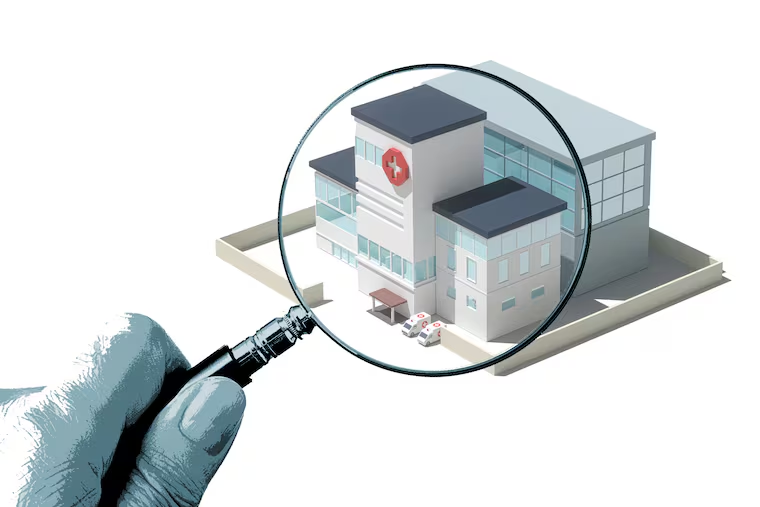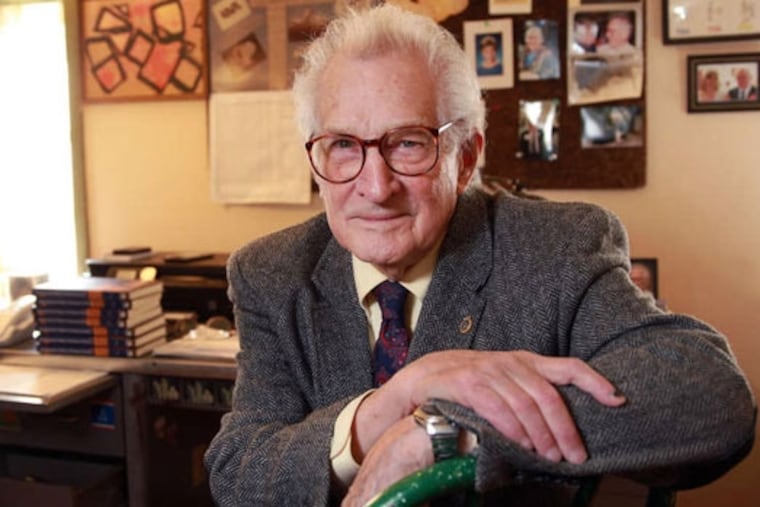Skip to contentJoanna Fong-Isariyawongse, The Conversation
Barry J. Jacobs and Julia L. Mayer, For The Inquirer
Joanna Fong-Isariyawongse, The Conversation
Joanna Fong-Isariyawongse, The Conversation
Barry J. Jacobs and Julia L. Mayer, For The Inquirer
John Lin and Jalpa Doshi, For The Inquirer
BriarRose Edwins and Hayley Goldner, For The Inquirer
Layla Bouzoubaa, The Conversation
Marcia Dunn, Associated Press
Adela Suliman and Kasha Patel, Washington Post
Marcia Dunn, Associated Press
Adela Suliman and Kasha Patel, Washington Post
Noah Robertson, Tara Copp, and Ellen Nakashima, Washington Post
David Ovalle and Cate Cadell, Washington Post
Geoff Mulvihill, Associated Press
Noah Robertson, Tara Copp, and Ellen Nakashima, Washington Post
David Ovalle and Cate Cadell, Washington Post
Geoff Mulvihill, Associated Press
{"ENV":"U3N3BmNUZ018c3MFdjFkA3xweAZ3InQHfGBoCg==","CONTENT_BASE_PROD":"VU1/BlgiUV9QXXddWDJaTX5jZAV0MlYFf11wTXQhZE1rXWBPdDF8Qnxdc1t3InAEaFpnXXciZ1l8Y3QDdCJWTWhNdE53IXhCa3BoQGMydAVrc2dbdAt4B2hdeE1jC2dZfwV0BGMLYAg=","ARC_ACCESS_TOKEN_PROD":"Ulp/WVwybE9oWXwDWxxaQn9zc190MnRCa3N8TnQhbExoXXADdzJsQnxdc110MnAFfGNgBXciVgd/c3gFdAxgBH9wa1x0HHBPaF1zX3QiXgRoTVVaYzF8T39dUk90VGxNa1pnWnQidE1+YHQGdyJ4TH5gaAZ3IntZa113WnQyYEJ/WmgDdxxsBHxwZAR0Imdca2NwBXQhYEJ/TXtcdCJkBWtzZ15jMXtZfwV7XWMye1lrYGhPYwxnWH9jYEB3Il1Za2BoQHcMfE1/BWtdYwx4CA==","GRAPHQL_KEY":"UFljT3QydE9rWV0EWyFWA3xdVkBjIngGf1pkTndUfAZ8BWRAYwx4AHxdZAZgHHgGf2NnWnQibABoXXAFdiJzWGtaYEB3HHxMfHB8QHQic19rXXwGdAtwTX9zfAZ0IWwBfGB8QHQnCAg=","GATEWAY_URL":"VXBGB3YuYE98WXdbYBxaBH5zc153MXAEfGNwA3ciXgRoXXNedDJRWX9zcAN0MXAGa2NzW3QhcAV/XWADYwtkTXxjZ1tjDFJPa2B7WmAMd1hoYHdeYAxWCA==","GATEWAY_SLS_URL":"U1pCT3QueAR/WWcFYzJaBXxdc113MWwEfmNzW3chbARrXXNadCJnWXxddE50MWQGaF1wBXQheAV8c2NdYwxeQnxdZANjMnxPfmB7X2AMXVhoBXdcYAx4CA==","FEEDS_URL":"fnN7T2MMXVh/Y2ADW1R8A3xjY150DHAAfHNWB3cyc1l/YHgHdDJkTXxjWk90HGRPf01oQHYycAR8c2hPdwt/XWhdd15jMntYfE10B3dUf1l8cHxNdFR/X2tjUgRgMlZNfwVoTXcxbExoY2NfYAtgBHxzZAo=","RESIZER_KEY":"fF10BlwLUUFUb1VEdDFgA3xzaARgMmdefGNWBWMMYAZ8XXhOdxx8T39jUkBjMm9df3NwBXccZARrY2hAdwtsBXwFaE9jMn9da2N4BHYiZE9oWnxOdiFsBmtaaE13MW9Za2NkBncRCAg=","GOOGLEANALYTICS_ID":"UnBgAl0yWV5oBVIFWgxaBX9jYE10InBPf2NkTncyeARrXWQCdCF4BGtzf110VGwI","TWITTER_API_TOKEN":"f1poQFghY1x8Y3tAXTFwA39afE53Mm9efE1wQGMxYE1/Y2AGYAx4AHxjfE10MXwHfF1oBHQieAZrY2RPYAxvWGhddEBjMntcfF1VXmAxYAB/Y3hPdwx/XGtdeE90ImBNa11WT2MLYAVoXVpNYzF8Bmtjd1pgVGNYf2B3XnRUZE1rYGRNYDJjWXxgZ150MWxMa2NjW2MMZAF/YHtcdwtjX2hNfAJ0HHAEfnN7W3cLYAF8Y1lediJZWWtjWV13IXgGaGBjXXcMXgFrY3tadCFsB39zWV92IWNYfHB4T3YiXVxoTXtfYDFvXWtaZ1p3C3AHf2NZW3dUeExrWn9adDFsAH5jf1p3HHAGaE10Anchc15rc3tcYzF4BH5jdE9gHFlcaE1nXXQLeAF+c3gCYzFnWGtdVVx0DFJPaE1aCg==","GOOGLE_CLIENT_EMAIL":"UF1wBlsMf0JSf39cYAsNA3xzYAZ3MmAGf3NwT3cyc1l8c1pAdwx3X3xjfEB0HHRNf01wB2MycEJoXXBAdwtsAHxzZAZgMn9ffGNjW2MMVgd/BXxNYBxWAXwFe1pgDHxCfFpjW3YxYE9rYGtfdFRzX3xad153MW9ZfGNZWmMhbARrXWtadDJ7XGhaaAJ3DHgEaGNZXGBUYAV8XVZNYFR4TGhNYAo=","GOOGLE_PRIVATE_KEY":"f29VRlohYEJrBXtPXQhkA3wFfAZ0ImNdf2B4T2AMc1h8c3hOdjJ8TX9zeE53ImwAf2NkTXcif158c1IGdBxjXHwFeE5jDGBCf3B4BHcieAV8WnwHYwxkB39df1t0MnRNfHBnWnQxbEJ/YGtbYwxwT39wfE1jMm9ea1pgQGAMcARrXWtcYBx3XHxjf1p3IWBNfGBkB2MMc118YGhOdAtjXnxaeAR3HHAAaAV0T2ALYAB/c3hPYDFjXGhNe110IXtZfnN7XGAce1xrWmtfdCJST2tzf1t3IXtca2N0TWALbAd8c3Ncd1RkTGtde15gVGwAfHNnXXcheEJrXXdfYwt4TWhNf1x0C2QAaGN3XnQLc1xoXXdeYzF8B2hdVk90C3gGaE1VXnQMWV1oTXtcYFRkAGtjZ1xjC2NdfmNrXGAxYAR+c2dbdFR8T35zWV1gMllca11nXXQhZE1+c2tfYFRkAWtzeAJ0HHgEfF14B3QceE18c2BAYBx7XHxgfEBgC3wFa2NST2MyeAF8BWAHdBxWTWtdfE1gHHRMa2NgQHYicAVrY2RPdFRsQnxdWgdgMWNYfF1oQGMMcAFoXXxPdzFgTWtafE90ImdeaGNjWmMycAd8Wn9ddyJkTGtdZE52InwBa11WQHQyWVl8XWhPYyFgQmtdd192MXhPa1pnW3QMZ198cGtfd1R4T2tge1pgVGRCfnNaT2MxZAV8c1VcdAtvXX5ga1t3MWdda3B/WnQhcE18TWddYwtgT2tga1x3C2wGa3B/X3QicARrc3NaYFRwTGhjY11gC3gAaE1nWncxf11oBXtbdDFsBn5ze153MWQEa2N7XXQxcE9oY1lfdAxSAGtzZ153ImdYaGNnXHcxcAB+Y3ACYyJdWGhNeAN2IXgBfmNwAmAyUk1oXV1adAt7WWtdWgN2IXNefnN4TnQMY1h/c2RNdwxgT3xzZEBjDGRNfHNaT3cicAB8XXQFdjJkT3xaeE90InRNfHNSQHYybAd8c3hPdiJ3XnxNWgRjIWBCfGNSTWMMeAZ8c1IHdjJ8BXxgaE50HHQAf11WBncMdAdrWmdbYBx/XWhdWkB0HHBNfFpkQGMybAZ8BXdadBx0AWtjc1xgC3NZa1pkT3dUZAdrYHQCdCJwAXxdWVx0IWdea3N7X3QLeAdrcGdddDF4Qn9gd1p3MWxCa11oQGMxb19+Y2deYyJ4B2twf1t3VH9Ya11nXHcLZEJ8cHtdYwxZWWgFZ1x3IWQGa1p7X2MLYAFrXVladyF8T2twZ190C3wFa114AnQicAVoY3deYFRvX2hjXVxjMWdda2BjXHcLcAVoBX9aYFRkBGhgY193MWdZa11dX2MxZABrc2tdd1R8TGgFZANjC39ZaGNzXnQxfAB8Y3AEYwx7XnwFYAR3MnAEf11kTmMif1h8TXBPdzJ/WHxaZEB0DH9ZfE10QGMMUVh8TXNbdiJgBHxzWk5jMmAFfGNST2MxYAV8Y2BAdyJ7X2tjWk52MnRCa2NSBnYyfE18XXBAdjJ7Xn9zY1p0C2AAa113XGMycAd+Y3dbdzJ4Bnxgd1pjIXAFaE1zWncLY1lrXWtddwt/WXxzdE93C2AGfGBgBGAxYARrY1pAdzFsTWtje190MWwEaAVjXncxY1x+c39bYDF4AHxzVkBgMWwGf3B3W2ALY19rXV1aYAtwQmtgd192MWNca2NrXnQMXgBrYGNdYBxzWGtwaAJ2IWxMaFp7WnQhZ1lrY39cdzF8TGhNZ152MXgAfnB8A3QLb1lrWndeYAtwBn5wdAJ3MXBPfmNrXnQhc1x+c3tddjF7WGgFd153DF4Ga3NZXXcyXgBrYGtbdxxgQnxzcAd3InNff11WB2MMdAR8TVVadBxgAH9dVVt3MmBMfAVgT2AcdE1/XXxOYDFgBmtdcE52MXxNa2NgQGAcf1hrXWtadwxgAXxaZE9gDHAGa2NjX3Qcd198Y1JAdwxgT2tdcAJ0IndYfGN/W3QhYAB/YGhAdCFvWGtgd1t3MnQFaFpnW3QycEJ8XXNbYzJeBWtaY1tgVG9ca3B7WmMMVgR8Y1lbdxx7XWtdYAJ3C2QHa2NkTXchZAVrc11fYDFjWGhNa11jMWQAfwVrX2ALZ19rXWNadwx0TWhjf150VGdYa3NnW3QMWVhoY2tadiF4BWtaa1pgMWwFa3NnXHYxc1xrWnQDdyFkQmhgdAJ0VGRNa2NkA2MiXkJoYGtddwtjWGtja112MlIEa3NzX2MhZE9+Y2BAYyFzX2hjZ1x0C2QEaFpgA3QhcAdrYH9eYAxSBGhdWgV0HHQAfGNaBnccb198XWhOdDJ7X3xjaAdjDHAFfE1wB2Ace19/Y3xAdiJ7WXxzfE9jIngEf01aTWAMd1x8YHdbdAxnXHxjfE5gHHwAfGBkQHQxcExrXVVbdzFjXHwFY190VG9ZfE10QHcxYABrWmtfYzJwAXxzf1pgC2ABaGNdWmAccAR8c3xAdzFjX2hga1x0C2AHa11ST3YyXgFoTXxPd1RsAGtgd1xjDGAAfE1nWmMLYAR8TXwDdwtjWGtwY1x0VGRCa2B8A2MxbAZrY2dbYyFgTX5wd1x3VG9YaAVkT3Qhe1loWmNbYFR4AWhjWV93DF1ea2NrXGMLfE1rXV1bdFRsTWhNY11jMnNdaGNwAmAxZAdoWmdddyFwT2hjZ1p2MXNYa3NjXncxe1l+cGdediFzXmtzfAJgVHtfa3B0AnQiUk1oWnwDd1RzWGhNWgNjC2QBfGNoTmAMe1l8Y1YEdBx0B3xjcAVjInQEfHNkT3QyZAF/WmAEdiJ0AXxdeEBjIn9ff01oTmMif1l/cHxOYzJ3XGhjUkB2MnQHa2N4TWMxf1lrY3BOYAtvWHxjdEB3HG9df2BrXWMxY19rXXtfdDFsBmtde1pjMWAFa2BjX3YydAd8Y3RAYyFsTGhjYEB0MnABa3BjWncLZABoY3RAYAxwTXxzd1p3MXwAa11/XHQhe1xrcHxOdwxvXGtwY1tgVGAFa110B2ALZE98YHhAYFR4BGhdYAJgMXtZa2N3XnchbE1oXXdfdCFnXGhaY1p3C2dZaGNjXnYhcE1oYHtddjFvWWgFY1pjIWRMa3N7XHccXV9+Y2dddwxeT2hNYAJgVGRMa2BjXGMhe11oTX9ad1RkT2hjUgJ2IWNYa11jX3QyUgF+Y2tddAt7XWtaZ1pgHFlZaAVnX2Myc198XXhOdwxkBnxjUgdjMlZMfGNWT3ccYAB8WmhAdjJRXnxjYE9jInAAfE1kBHYifAF8TXAHdDJwB39dVkB0InNZfGN8T3cic1x/TWRAdwtgT2taa1t0VHNcfGB0TWMhbAB8XXxPYDF8BnxdXVt0MWRNa2NSBnYheAV8c1JPdyJ/WWtwYAZ3C2AEfF1ZXGAcc1h+c3NdYBxzXWtza1x0MnABfnNrWmMidE98c39adjFwQmtjUkB3InxPaAV7XWMyXV5rc1pPdzF4TXxdWgN3MnAAfGB7WnQxe1hoBWQCdyF4TGtaf1t2MWBCaGB/XnchfE9oWmBOdjF4BGtdWV52IXhMa3NnX2AxcE9oWntdYAtjXmtwa11gVGNZa2B8A3QhY15rWntcdFRkQn5za112IXxNaAV0B2MLcE9oTXgCdiJdWX5wY110MXxMaE13XXQLf15oTWhPYwx3X3xgYE53Mn9efGN8BHQidAR8XWhAdiJvXnxzZ1t0DHhPfGNaB3QcY1h8c3tadAx4Bn9afAVjMWxNfGBgTmAccExoY3Nadwx4BnxjUk9jDHAEf2NWTmAxb118c1YHdDFzXGtdaE9gMnRNa11zW3Qxf158TXRNYwx/WGtdf150IWxPa2N/WnQiZEJrYGdfdAtnWGtzXVtgDHRPaGN3WmAxe1h8c3tadjFsTGhdeE92MXhNa3NrXHQiXgV8TWdcYAtsBGtaf1p3DF1Ya11jXXQhZAVrY3NfdDFsAWtzVkB0MX9eaF1VX3cxe1loBXtedCF8BH9aa1tjMXxNaE1VW3dUe1xrWn9eYyFjX2hjY153IXNcaAVgA3cxfEJoBX9aYDJdXWgFZ1xjMl4AaGNVWnRUZAVoBWdddAxZWGtwY1tgMXwHfnNdX2MxYAZrY3ded1R8AXxjdE10HHgGf014B3QicEJ8XVpPYwx8TXxdfE90HHNff2N8T3cMbAZ8c3xNdiJ3XWtjcAdjMmRCfGNnW3cyf1xrWmAGYwxwQnxgeE52MW9Zf3N0QGMMeAZ8c2dbdzJwTX9dWVtgC29Ya11wT2Mib1xrYGNbdzJwB3xwdEBgMXxPfGNST3Qcc198c3QGYFR7XHxgaE93IWwHa3NjXmAMdEJ8BXtcYyFjWX5ga1x0VGxMfHNrXXQydAd+c1VbdwtvWGtgdE5jDFJMaE1rW3dUfE9rWntedwtvWGtgZ1pjMXgGfGN7WmAxb15rWmdbdjF7X2hdYAJ0IWNfaAV7W3cxcEJ+Y11ed1RnWGhjcEBgMXwAaGNaAndUbEJrc1VeYyFsAWtjd152IX9eaE1nXXYyXgdoYH9edxx0BmtzeANjIWdfaFpkAnche19oBWtfd1R8BWhjWV5gDHRNfwV4TmAycAZ/BXhOdBx7XH9NWgdgHHNYf118BmAccAF8Y3NbYzJ8BXxzUk90IXxCfGN0TmMhbAB8c11eYzFjXHwFZEB3MnABa1pkBnchb19rXVZPdyFsAGhja1tgDGQHfGB7WmAMc1h/c2NcdzFsAXxjUgZgHGdea1p3W3QidAd8cGtaYBxkAGtga1pgVGRMa11aAnRUYExoBXtcdAt4THxzZAJ2InQEa2N0QGMhb1l+YGhPYwtnXGtzZ1tjMWwBfnBrW3cyeEJoTXNbdDJdXWtwd192IWRPa2BrXXccYExrXWtcYyFsAGtgY190C3wFaF17W3dUfABoTWNadjFkBGhNe193VHAAfmN3WncLfAZrYGQCdyJeBmtzd11gC2AFaFpnXmAcXgZ+c2gDdCF/XmhdXVp0C2dZaAV0A3chf11+cGNcYFR/Xmhaf150C3NdfnNwB3cce158XXRNdzJ0T39daE1jIntefF1ST2MMfAZ/cGBPYzJ8BnxNfE53ImRCfGN4TXcLbAB8TXBPYzJgB3xaZEB0HHAGa2NZXmAyeE18BWhOYzFvXHxzc193DHAFfHNgB2AydExoY1ZNYFRsAWtjc1tgVGdfaGNnW3QLYAF8Y3RPdBxgBXxzfEBgMWRMa2B/XXQxfExrY2tbdDFvWWtaaAR0MnNfa113WnYhYAR8c11fYzFkBHwFfEBgMXtZaGNnX3cLe1hrc3NcYFRkAX9aa112MXABa2NjWmMLcAFrXV1cdzF8AGtgY11gMWwGaF1nXWALbAB8Y2QCYwtzX2tda1xgC3BMaFpnW3QcXgZ+c11eYDF7XWtgZ1x0MXAGaGB3WmAxe1x+cHddYzJdX35gZ1x0VGNZfGNwA2Mxf11+c2Ndd1RgAX5jaAN3C3gBaFp7W2AxfE98XXxAYwx4AH9zUk5jInRMfHN8Tncie15/XXwGYDJjWXxNZE10DG9Zf2NkQGAcdAR8BXxNYDJwTXxjf1tjMnQBfF1ZWnYibARrXXwGdwx0TGtdVV90C2BMa2NgT2Ayc19rc2AGYzJzWHwFYEB0DHQFf1p3WnYifAZrYHhAdjFgT2hdZ1xgMnBNa11oTWMLc11rY3taYwtsBmtjUk9jMmdcf3NaT3chY19rXXtedAtwBmtzY1xgHHdcfHBkB2Mxe1lrc2NcdiFnWH5gf1t0IXgBaE14TmBUY19rXWtbYzF4THxgY11jDF4BaE13XXRUZ1xrXWNaYwxkAGtza1xjC2NYaE1gAnRUcABoTWRAYAtkTWhdfAJ0C3BCaGB7XmMxcAFoWn9eYzFkAGhNf113C39efnN3XXQhY1hoTVVfdiJSBmtwZ1x3DFlYaE13WnYhZ1l+YHwDdAx0THxzYAZ3DH9efwVoTWAye1l8TXwEYBx7X3xjYEBjMlFcf1p4TWAyeAB/XVYHdDJ4BXxwZ1p2MmAEfHNkTWMyYEJ8XXxAdAxzXn9zYE9gMmABfHNkT3Yye198cHQGYwxgT3xzZE9gDHwEfF14BGAyf1h8TVoK","BLUECONIC_ENDPOINT":"VV18BHQhVgd+Y2RAdjJaQnxjZ113MlJNa2NnWnciYAR/TWBAdzJSBWtgaAV3IlYGf11wBWMyYAV/YHgDdyJvXH5we1t0VH9cfHNwA3ccYE9/WnQEYAxnXH5jc1pgDGAI","BLUECONIC_STORE_ID":"UmAAB10LZ1l+f1VbdjJSA3xjcEB0DHAGf3N8QHQyfAd8cGRPdjJjWH9waEB3MnNZa2B4TXcyeAV8XVJPdyJ3WHxzZE93DGdYf01wTXQifEJ8BXhOdxx4TXxdaAd3DH9cfFp0BWAMbAFrWmdbdzJ8TQ==","BLUECONIC_KEY":"aFlrRGNUb0RoYGcCWFQNA3xjfE92MnNYfHNWB3QicE18cGhAYDcICA==","BLUECONIC_SECRET":"VWB/TVoyUkJUf3NfXDFCA3xddE10HHhNfHNoBmMiZAV8cGAHYAx4BnxzfE50IWwFf3BoTncyfE1/YHwHYAtsTXxNaE90HHRNa2NVW3dUY1l8WmhOdCF/X38FYAZgMnBPa2B0T2M3CAg=","AMP_AUTH_BASE_URL":"f1leBmMiXk1oWkEEWyJaBGtwa193IWRCfE1gBHchZE18TXNcdyJ4QnxweAR0InAGf01kTWALZAVoY3RAdzFvWH9NdE93VGAFf3B7WnQxb1x8c2NfYwx/WX9jeE5jMlYGfHBnWmAMc1l/BXddYAxvWGtjeAR0MmNYf2B3XGMifAB/cGtd","AUTH0_DOMAIN":"fGNgTVsybwF/TXRNdDJnWH5dZ1p3MnAEfGNgTXQxbE1rXWNcdzFgBWtweE53InhNfGB4B3cifAVrY3QDdyFwQnx2DAo=","AUTH0_CLIENTID":"a2B3A1ohRgB8BV1OYyFeA3xwYE9gDGdefF1gQGAcb1h/YGAGdwtsTXxNZEB2InQEf3NoB3ccZ1h8TXdedCJgT3xwZE5jImNefHB4TnQLYAdrWnRAdxx7XGhaZEBjInABfGNgT3Q3CAg=","PIANO_ID":"aARjWFohBF9TcElAd1QNA3xddE90HH9cfGNwTmMid158c1pAYzJ3WH8FeAo=","MIXED_CONTENT":"fAVBRVpVd01Tc2tbXRxaBGtzc1p0Il4Ea3NgB3QxbE1+Y2AFdDFkTWhNY190MlIFf2BoBHQie1h8TXdbdCJ0TWhjc110IlIEf3BnW2MLfEJoY2NddAtwB2hNeAZjMntdfAVrW2MydAg=","VIAFOURA_SITE_UUID":"UE17TlwxAAdSc2dGWwtSA3xwYEB3DGQFf3NwQGAMc15/cHxAYBx0BnxdaAZ3DH9caF1gTXcMe158WmRNYyJkBn9NcE50DHAEfF1wTmAyUV18TVpOYyJ8T3xNZ1p0HGxNfAVkTWMye1x8TVIFdxx/XQ==","GOOGLE_CLIENT_ID":"f1lkBGBVZ1xScFlAWyENA39jVk90ImAEf3BgBnQcd198Y1pPdyJ0BHxzdEB3MXwFf3B7XncLYEx8c1JPYyJ3XnxjaEBjInwBf2N3XmMhb15oWn9bdCJ4T2tjYE1jIWBMfF13W3cye15/WnxOdCFzWHxzd1p0MWAAa1pnW3QicARrXWdadjJgTGtzd152IXhMa2B7XWMicAZoTVpOdwx0BGgFYAJ3DHAAf3NjXHQccAZoTVpAYBxzX3xzVk9gDHNff3N0QGAyXkJ8Y2BAdjJzWA==","AUTH0_BASE_URL":"fn9WA10iWQRrBVlOXTFGA3xjYE9jDGAHfGBgB3ciZAB8Y3xPdyJ3X3xzaAZgHGAFfAV/XmAxbEJ8c3taYwxzWGtjWkBjInwHa2NSBHYyeEx/c2BAYAxRWHxNc1tjMWwAa2NrW3Qxb19oWnwK","CHARTBEAT_DOMAIN":"VVp7XHciWUVoBXRAdwxaTX5zcAR0ImxNaGN0QHQhYE1+Y3NbdyFjXH9jcE90MmAI","G_OPTIMIZE_CONTAINER_ID":"f01ZWmMcXUNVcFVPWhxaB3xdUgV3MXwEa3N8TnRUZEx/Y2QHdAxWTWhdUgI=","G_TAG_MANAGER_CONTAINER_ID":"UnBeT1syfABrBFkGWwxaTH9zeE53DHRPaF17XXcMYAR/XXtedAtwT2hQDAo=","SF_CLIENT_SECRET":"a29ZT10ydwVrf1VBYzJaTH9NY110HHwFa11kBXchYARrc2NedAxwTH9NeEB3ImxNa11jXncMfE9/c3wHdAxSTGtzeAV3IWRMa2N/X3RUeAZoTXQGdCJkTHxzYEB0HGxPf2N7XnQybExoXWQCdAx0BHxjd1t0IXxPa118A3QMZE1oXXdeYAtkQn9NcAd0MnhCaGNwAnQiUkJrYGQCdCJsBGhjc1x0MXxCfHN0BnQyZ19rY3QGYwxkQmhmDAo=","G_RECAPCHA_V3_KEY":"aGB7QVshbE1rcEVHWBxeA3xNdE52InAHfHBkBXQiYAd8BWRNdjJ3XHxadAZgHHtff3B0TnQMeEJ8TXQGdyJ/XnxweEBgDHBMf01zW3cLYAFrY1JPdyJ0Bn9aZAZ3DHQBfHB8TXciZ1h8YGRNdCF7Xn9zXVt0MmRNfAV0Cg==","G_RECAPCHA_V2_KEY":"UwVFA3Yhb1lTXVUBWAtkA3xdZEBjDHhMf2B0TncicAZ8cHQFdyJzWXxzWk10HHxMf01kTnQcbE18c2ROdxx8T39wdE9gMnwBa2BoQHcydAR8c11edjJ0BHwFdAZgHGAFfGBoTXcycE9rY2hAYwtkAX8Fd1t0MnAEfE1wCg==","GROWTHBOOK_CLIENT_KEY":"a3AATlhUUQNSXVZOdzJgA39gZE90MntZfHBkBnQid118BXQHdCJsTH9zfEB2InNff3NwTXcMYEx8YGRAYyFvXA==","SOPHI_HOSTNAME":"UFprRWBUBEZrWllCdDJaQn9zcE10Il4Fa3NgB3QhfE1oTXAEdDJ3XHxdd1x0MnNZa2N3W3Qyf1l+ZgwK","HTL_SCRIPT":"U39zWXYxRk9rTXxAdxxaTWhNdE53IlIEa3N4AncyXk1/TWNadyJ4TWhjdAd0ImBMf01zWnQyXgV8cGRNdCJnXHxNYAd3MmNYfAVnW2ALY1lrY2ADdAxwB3xdc1x3HH9Zf2BrXGMyVgZrWmROYAt4T2tgdE1gMl1df018A3RUZEJ/c1oDdBxSAHwFfARgMXwI","LIVEBLOG_WS_SERVER":"fwVaTloMdABQWVlPWAtwA39jWkBgHGBCf2B8T3YyY1l8Y3BPdxx3WGtjWk93DGRCa2B8BmMMdAR/cHwHdiJwBGtaaEBjMnwEf2B8QHYie1xoWndbdFR/WQ==","SOPHI_SCRIPT":"UGB8QGMue0V8WWtfdzJaTX5jcE90MWwEa3N0BHQLZEJrY2NedzFkBnxzZE10DHAEa11kT3QifE1/Y2BNdCFnWX5we11jMmBMfnNzWmMxYEJrcGhPYAx/WH9je1pgDGBMa2BoTmAyUVloWmRPYwx0B35zf15jMWNcaGN/XWMyXV1/YHwHdDJRX35zaAdjMl1Yf1p3XXQcVk9rY1pPYFRnXmtafAZ2MWdZaGYMCg==","STATS_WIDGET_CLIENT_ID":"fGNgT3YxUUVrY3tdWwhjQX5dYEB3MXwFfF1kBXcicE18XXNedzFkQn9Nd1x0InBNf2NwTncheAV8c2NcdDJgTXxjdAJgDHwEfnYMCg==","_id":"3c0b42c4f7d16c073446d54c621d77c8eb621c44b3ea4451d8261512d1f2c548"}























